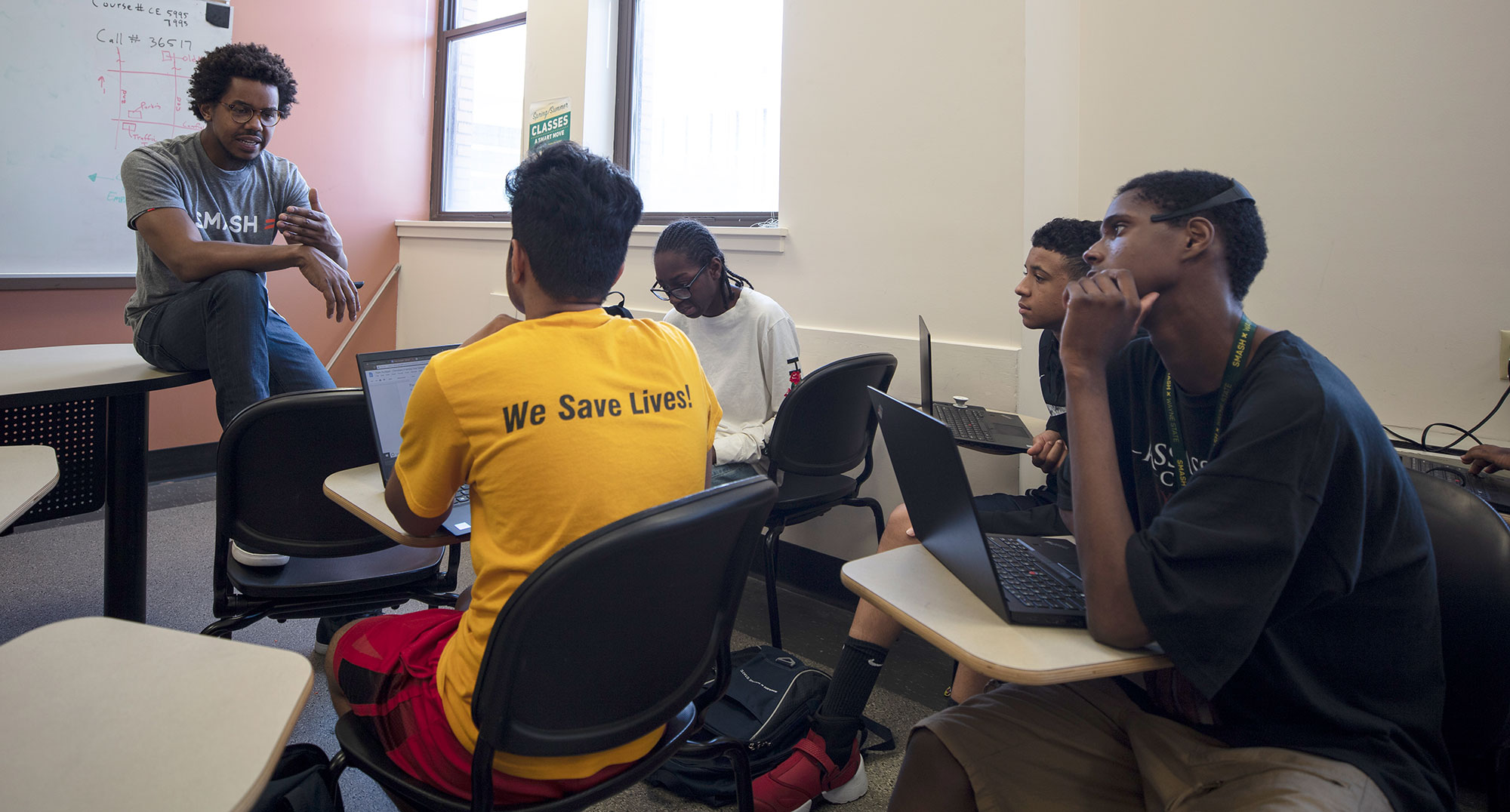SMASH Academy brings high schoolers to Wayne State for immersive STEM experience

Detroit is on the rise, and the city's growing influence in the high-tech marketplace is one of the hallmarks of this resurgence. With this growth comes an opportunity to break barriers in diversity and inclusion. Although 88 percent of Detroit's population is Latino/Hispanic or African American, these groups still remain largely underrepresented in the tech space on a national level.
Last spring, Wayne State University announced a partnership with SMASH, the signature education program of the Kapor Center in California, to level the playing field and close the gap for minorities and women. SMASH was established 15 years ago at the University of California-Berkley and launched its first Midwest location in Detroit. The three-year STEM accelerator is free of charge, and has a proven model, as 100 percent of its scholars graduate high school and more than 90 percent obtain a college degree.
With the first summer program concluded, SMASH has proven to be a hit with Detroit's youth and stands to make a significant impact for years to come. A total of 37 high school freshmen completed the rigorous five-week schedule and the feedback was overwhelmingly positive, according to Site Director John Ray. Pre- and post-impact surveys and assessments indicated educational growth as well as greater ambitions to pursue careers in STEM fields.
The partnership between the university and the academy allowed SMASH to reach its goals while giving participants a glimpse into student life at Wayne State. Scholars took classes at the College of Engineering as well as in Old Main, Manoogian Hall and Science Hall. They stayed at Thompson Home and ate meals at Towers Café.
"It was important to expose the scholars to the different resources that Wayne State has to offer so they knew what would be available to them when they get to college," said Ray.
Even the application process was akin to the college admissions process. A pool of 70 hopefuls had to supply essays and letters of recommendation before advancing to online and in-person interviews, the latter of which honed in on non-academic characteristics such as teamwork and problem-solving.
In addition to college-level STEM classes, SMASH incorporates courses in writing, entrepreneurship and African-American studies to constitute a well-balanced curriculum. There are also networking events, workshops and guest speakers.
"We make sure they have the necessary tools to tap into their potential," said Ray.

Another critical aspect of the program is developing coping strategies and self-care to combat not only a lack of diversity but also a high turnover rate for traditionally underrepresented population groups.
"Although we encourage our students to go into engineering, tech or computer science, we also realize there are not a lot of women or people of color in these industries," said Ray. "So we teach them strategies to deal with being one of the few, or the only, in those spaces and to feel like part of the community."
Students were able to see real-world applications of their education with field trips that included the U.S. patent office, Quicken Loans headquarters in Campus Martius, and startups StockX and DPop. These visits, combined with other adventures more recreational in nature, provided an immersive experience in Detroit.
"They are welcome to all these spaces, and it shows them that you don't have to leave the city or state to find a better opportunity," said Ray. "Those opportunities exist here."
Ray is a Detroit native and spent part of his career as an educator in the city and in Houston before moving into management consulting for school districts and non-profits in Baltimore. He said making learning engaging and relevant is what drives him and as SMASH was looking to expand, he was excited to take this role.
"I wanted to get back to my hometown and help kids from similar schools and backgrounds as me to make sure they have every opportunity to be successful," he said.
Ray worked closely with Jasmine Roberson, director of community engagement for the WSU College of Engineering, to leverage her expertise on outreach programs and determine what spaces in engineering were well suited for SMASH. He envisions more engineering classes to be added to the curriculum in subsequent years of the program.
Now that their first of three summers in the academy is over, SMASH students will stay engaged with college readiness workshops and panel sessions on Saturdays during the school year. Meanwhile, incoming cohorts of students will bring nearly 120 participants to Wayne State over the next three years.
For more information about the program, visit smash.org. For partnership opportunities and questions, contact Site Director John Ray at john@smashprogram.org.